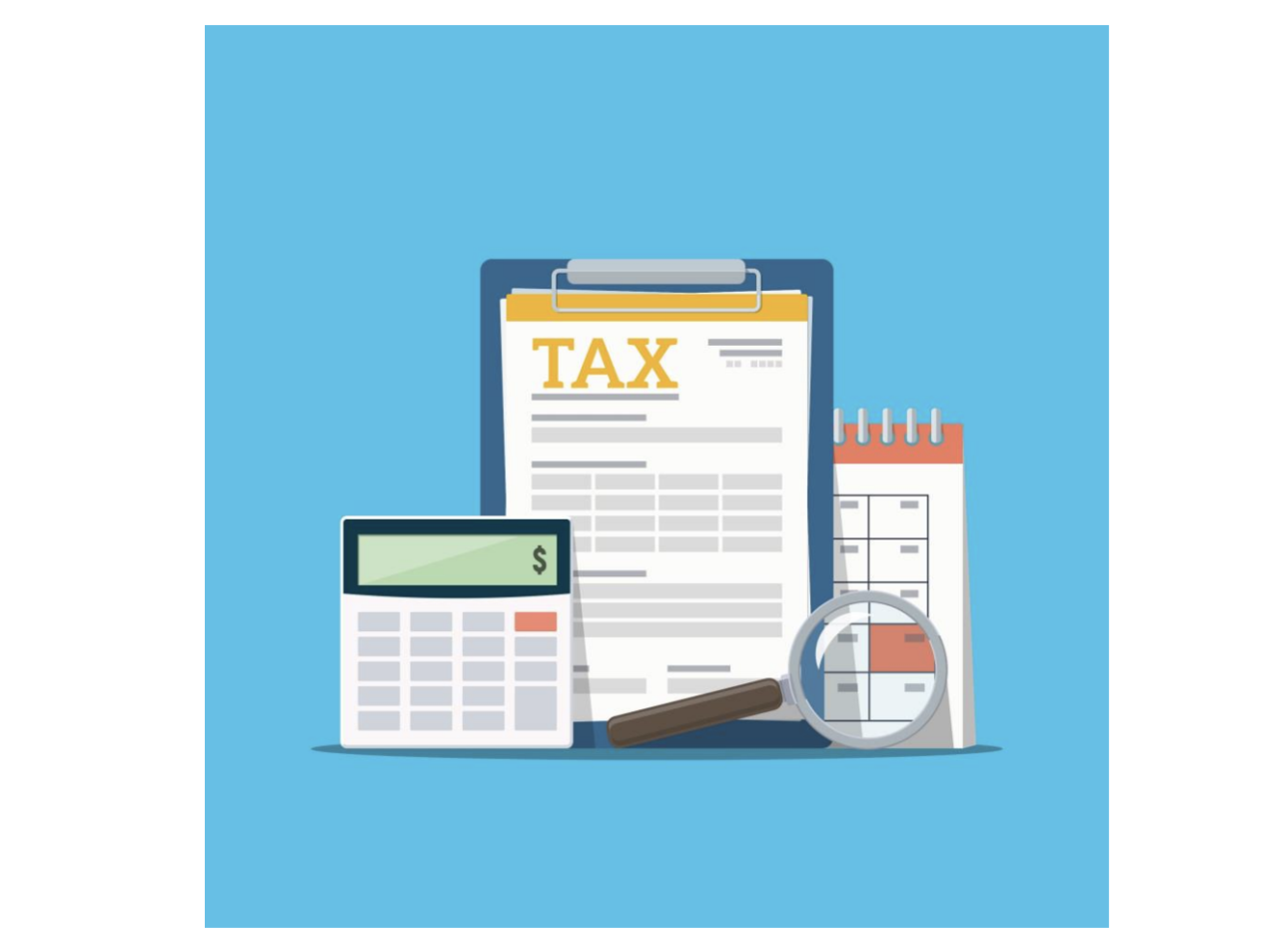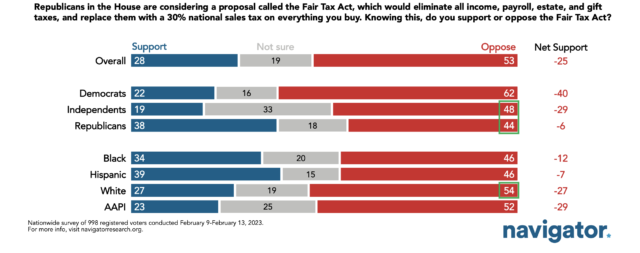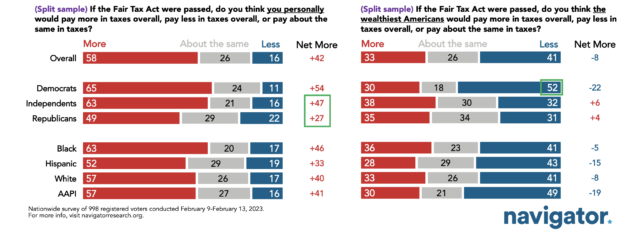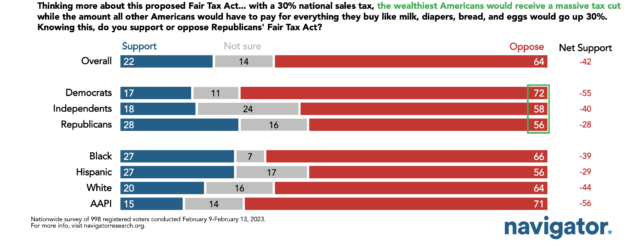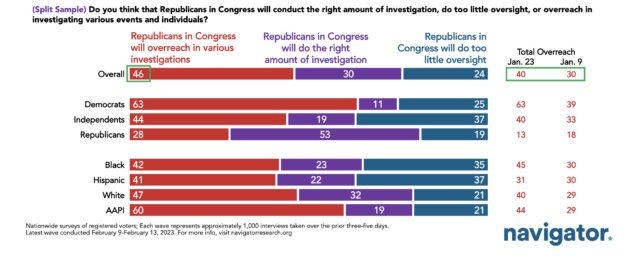- A majority of Americans oppose the Fair Tax Act, including pluralities of Republicans and independents.
- Nearly three in five say they believe they would pay more in taxes if the plan were passed, while a plurality say the wealthiest Americans would pay less in taxes under the plan.
- Providing information about how the Fair Tax Act would result in a 30% increase in prices for everything Americans buy, from milk to eggs and other goods, leads nearly two in three Americans to oppose the plan.
Majorities Oppose the Republican-Proposed Fair Tax Act, Including a Plurality of Independents and Republicans
A large majority of Democrats oppose the Fair Tax Act (62% oppose); only 19% of independents are supportive and a plurality of Republicans (44%) are opposed to the plan.
Bipartisan Majorities Say They Would Pay More in Taxes Under GOP’s Fair Tax Act While Plurality Say Wealthiest Will Pay Less
Two-thirds of Democrats (65%) and independents (63%) say they think they would pay more in taxes if the Fair Tax Act were passed, as do about half of Republicans (49%).
- A majority of Democrats (52%) say the wealthiest Americans would pay less in taxes; Republicans and independents are more split.
After Reading About a 30% Price Increase on Daily Goods Like Eggs From the Fair Tax Act, Nearly Two in Three Oppose Plan
Majorities of Democrats, independents, and Republicans oppose the plan after learning that it would cause prices on everything they buy to go up by 30% while the wealthiest Americans would receive a massive tax cut.
A Growing Share of Americans Believe Republicans in Congress Will Overreach in Various Investigations
Since the beginning of the year, the share who believe that Republicans in Congress will overreach in investigations has increased by 16 points (46% now, up from 30% in early January).
